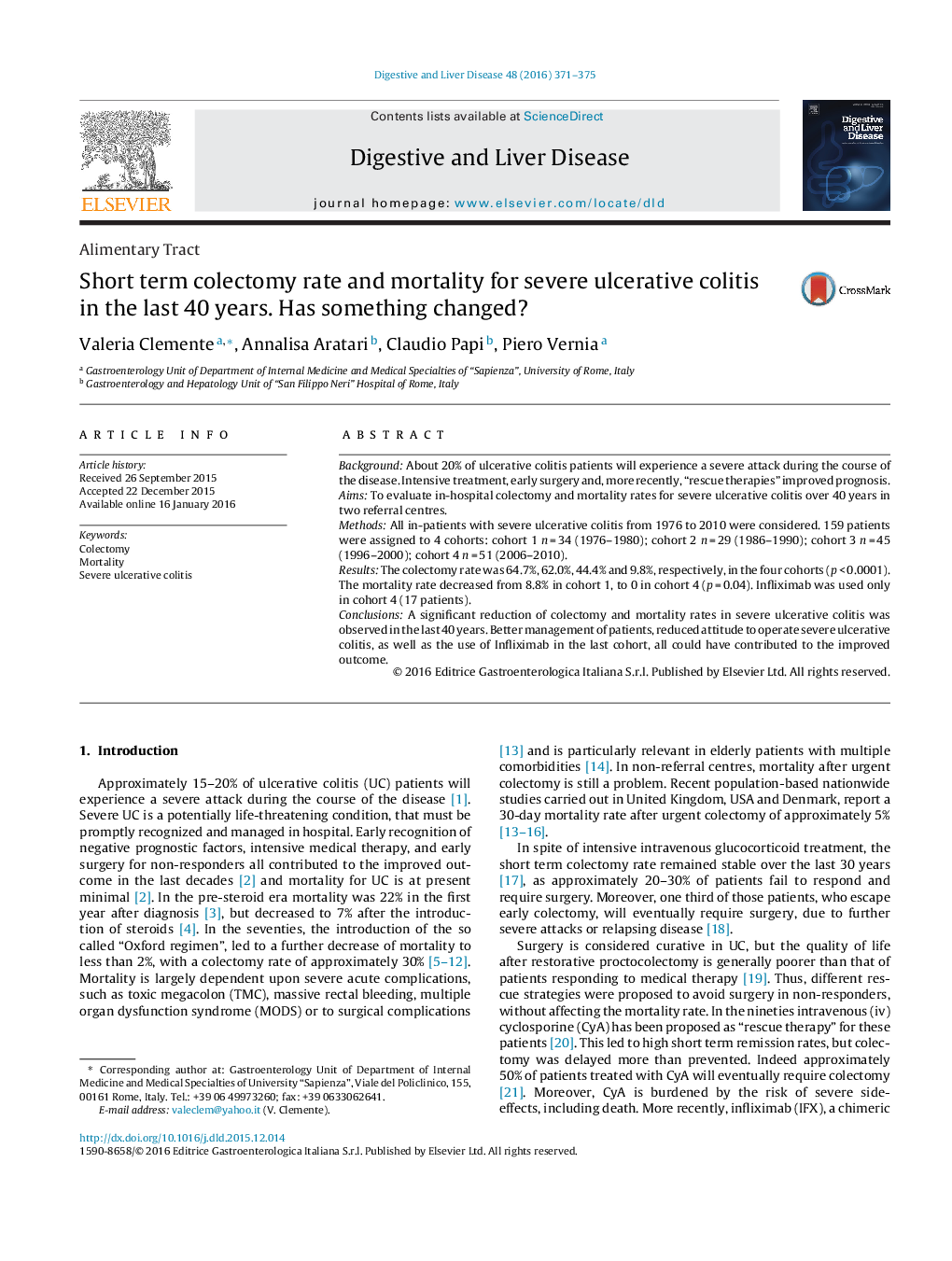| Article ID | Journal | Published Year | Pages | File Type |
|---|---|---|---|---|
| 3261464 | Digestive and Liver Disease | 2016 | 5 Pages |
BackgroundAbout 20% of ulcerative colitis patients will experience a severe attack during the course of the disease. Intensive treatment, early surgery and, more recently, “rescue therapies” improved prognosis.AimsTo evaluate in-hospital colectomy and mortality rates for severe ulcerative colitis over 40 years in two referral centres.MethodsAll in-patients with severe ulcerative colitis from 1976 to 2010 were considered. 159 patients were assigned to 4 cohorts: cohort 1 n = 34 (1976–1980); cohort 2 n = 29 (1986–1990); cohort 3 n = 45 (1996–2000); cohort 4 n = 51 (2006–2010).ResultsThe colectomy rate was 64.7%, 62.0%, 44.4% and 9.8%, respectively, in the four cohorts (p < 0.0001). The mortality rate decreased from 8.8% in cohort 1, to 0 in cohort 4 (p = 0.04). Infliximab was used only in cohort 4 (17 patients).ConclusionsA significant reduction of colectomy and mortality rates in severe ulcerative colitis was observed in the last 40 years. Better management of patients, reduced attitude to operate severe ulcerative colitis, as well as the use of Infliximab in the last cohort, all could have contributed to the improved outcome.
